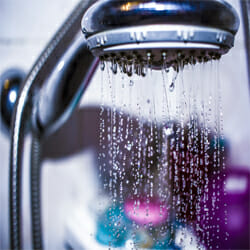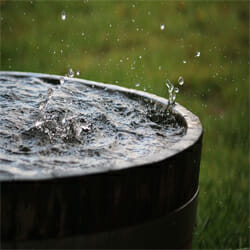As the global population rises, so does the demand for freshwater, making water conservation more crucial than ever. For the sake of our own and future generations, water conservation is an absolute necessity. Droughts, decreased crop yields, and other environmental issues are only some of the results of the global water shortage that the globe is currently experiencing.
It’s not just the planet but also our wallets that benefit from water conservation. In the long run, you can save money on your water bill by reducing your usage. Furthermore, water conservation is an important step towards sustainable development, and we must ensure that this precious resource is preserved for future generations.
This blog will explain the concept of water conservation and offer practical advice for reducing your water usage. These easy-to-implement suggestions can have a significant influence on your water consumption, ultimately leading to a greener, more sustainable future. We will go through everything you need to know to become a water conservation expert, from identifying and repairing leaks to installing low-flow faucets, collecting rainwater, and properly watering your plants.
Come along as we delve into the topic of water conservation and investigate the means through which we may save this invaluable resource.
What is Water Conservation?

13 Tips to Conserve Water
1. Fix Leaks
The first and most obvious way to conserve water is to repair any leaks you may have. Leaks, no matter how little, affect wastewater over time and should be fixed as soon as possible. If you notice any dripping from your sinks, tubs, or toilets, you should get them fixed right away. The Environmental Protection Agency (EPA) estimates that yearly water savings of 10,000 gallons can be achieved by repairing leaks.
Also Read: Gas Leaks Plumbing
2. Use a Low-flow Showerhead

3. Use a Water-efficient Toilet
Toilets can account for as much as 30 per cent of a home’s total water consumption. Newer, more efficient toilets use as little as 1.6 gallons of water per flush, while older, less efficient versions can use as much as 7. To reduce your water usage and your monthly water bill, think about upgrading your old toilet to one that uses less water.
4. Take Shorter Showers

Related Articles:
- Hot Water System Installation in Caringbah
- Hot Water System Installation in Greenhills Beach
- Hot Water System Installation in Paddington
5. Harvest Rainwater
Harvesting rainwater is a highly effective method of water conservation. Watering plants, washing cars, and even flushing toilets may all be done with collected rainwater from a barrel or other container. You can save money on your water bill and minimise your water consumption by using rainwater, which is both plentiful and free.
6. Water your Plants Wisely
Plants need water, but it’s vital to give them just the right amount. In the same way that overwatering may be wasteful and harmful to your plants, underwatering can have the opposite effect. When the sun is not as strong, such as in the early morning or late evening, it is more efficient to water your plants. This will prevent water from evaporating and help your plants flourish.
7. Use a Broom instead of a Hose
Cleaning your driveway, pavement, or patio with a hose causes excessive water usage. Instead, you should use a broom to clean the area. Water conservation is only one of the many benefits you’ll reap from doing this.
8. Close the Faucet
Water is wasted when the tap is left running while someone washes their face or brushes their teeth. Instead, while you’re not using the washbasin, turn the water off. In just one minute, you can save up to four litres of water by adopting this practice.
9. Use a Dishwasher
As compared to hand-washing, running a dishwasher uses significantly less water for cleaning dishes. Dishes washed by hand can waste up to 27 gallons of water, whereas a modern dishwasher only needs 3. Use a dishwasher to save water if you have one.
10. Only Run Full Loads
Finally, only run full loads when operating a washing machine or dishwasher. This will guarantee that you are conserving water. Running full loads can save as much as 3,400 gallons of water annually, as stated by the Environmental Protection Agency.
11. Get a Pool Cover
A pool cover can cut evaporation by as much as 90 per cent. It’s a straightforward and efficient strategy for reducing pool water usage.
12. Go to a Professional Car Wash

13. Spread Awareness
Finally, spreading awareness about the importance of water conservation is crucial. If you know how to save water and want to see others save it too, spread the word!
Bottom Line
In conclusion, preserving our planet’s water supply is essential to its continued viability. To ensure that there will be adequate water for future generations, we each need to do our part and make some minor adjustments to our everyday routines. The water conservation measures and ideas presented here can have far-reaching effects on our planet, reduce our water consumption and associated costs, and help usher in a more sustainable era.
However, we shouldn’t stop here in our endeavours. We need to keep spreading the word about the significance of water conservation, promoting responsible water usage policies, and funding conservation-focused initiatives. Start saving water right now by making little changes to your routine, and don’t be shy about dropping knowledge bombs on your loved ones and coworkers.
So, let’s all make a pact to reduce our water usage. We can make a difference with even a small amount of effort, so keep that in mind. Let us work together towards a time when everyone has access to safe drinking water and we all live in a healthy, sustainable community.
As the global population rises, so does the demand for freshwater, making water conservation more crucial than ever. Learn about water conservation and practical tips to reduce water usage in this blog.



 Enquire
Enquire